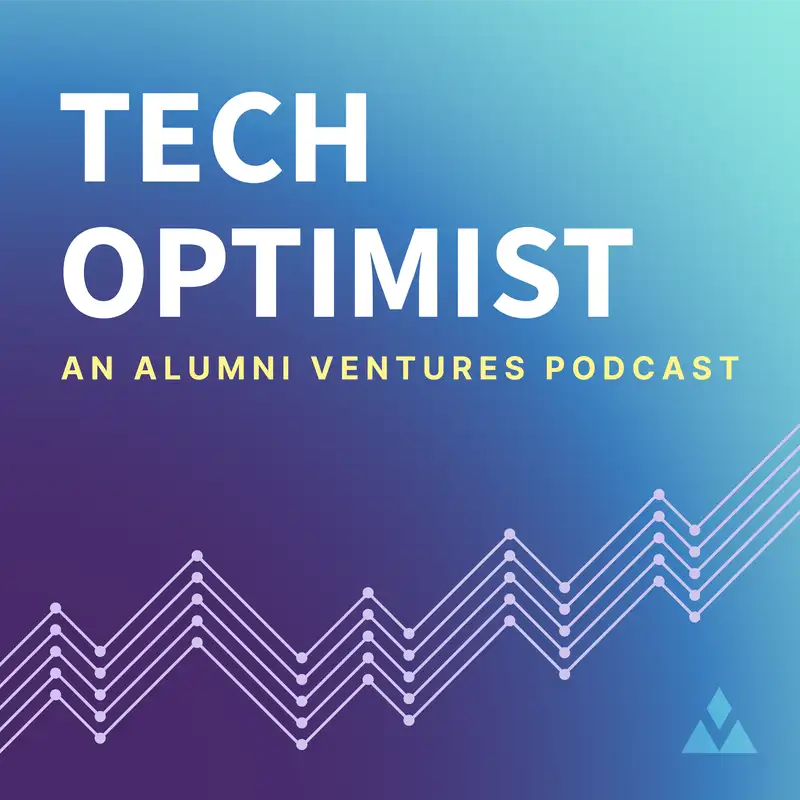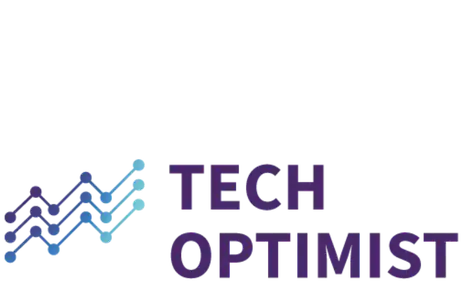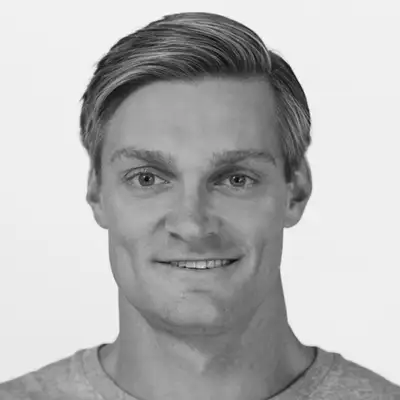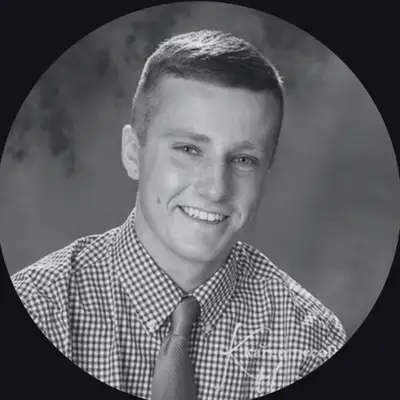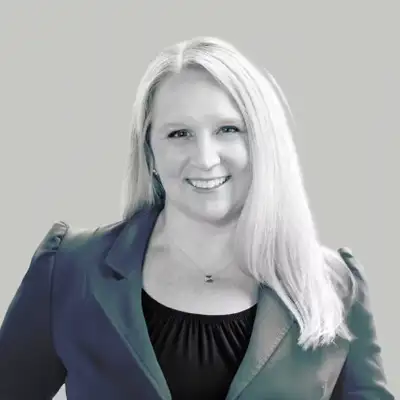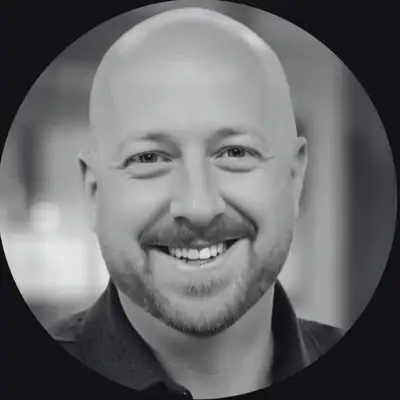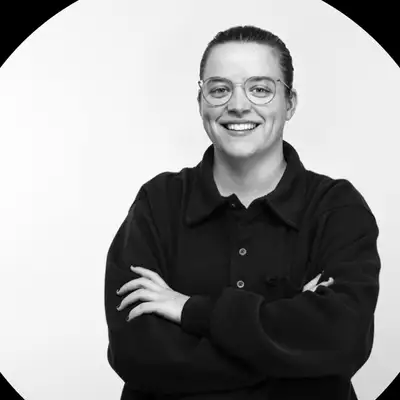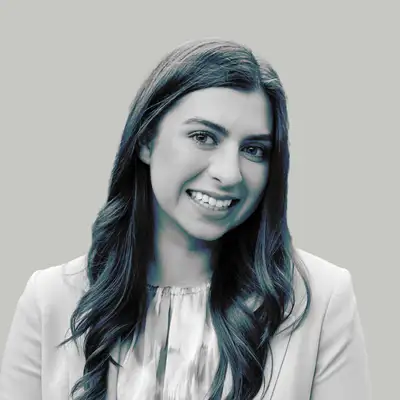#51 - Meet the Startup: Bezel – The New Platform for Watch Enthusiasts
Sam:
Ever wondered how to get the most legit watches in your collection? This company has told you how.
Quaid:
We have just north of $500 million in watches available on the platform, pretty much anything you could ever want in stock from the thousand dollar watch up to the multi-million dollar watch.
Chase:
I think what we've seen recently, and this is especially true in collectibles and passion-based industries, is that the passion is something that you can't really quantify, right? But you know it when you see it and capitalizing on that.
Mike:
So I'm a big believer in the kind of bespoke, handcrafted, handmade future in an increasingly technical world.
Sam:
Hello, everyone. Welcome back to episode 51 of the Tech Optimist podcast. Today in this Meet the Startup episode, we meet a really cool company called Bezel. Now, our lead for the episode, as always, is going to be Mike Collins, Founder and CEO at AV. And then our guests today are Quaid Walker, co-founder and CEO of Bezel and Chase Pion co-founder, CFO and COO of Bezel. Then of course you know me. My name is Sam, I'm the guide and editor and I will be taking you through the show today.
So a little bit into the conversation that takes place today. Chase and Quaid do a really good job of understanding their background and then helping contextualize how they got into what they do. So they both were avid watch collectors before they started Bezel. They teamed up and were like, "Hey, this process is really old and outdated," the process of buying, purchasing, and selling watches. So they made it their mission as entrepreneurs to change that and Bezel is a very new, modernized marketplace with in-house watch authenticators, and they just make sure the best and the most legit watches come out of their facilities.
And they talk about some really awesome stuff like right here at the beginning. They have a little conversation before the actual interview started about ChatGPT and AI and how it can help their everyday operations. Yeah, so this is a really fun one. The flow is really nice, the narrative is really cool. So we definitely hope you enjoy. So sit back, relax, enjoy your drive, enjoy the rest of your work day while you listen to us gab. All right.
As a reminder, the Tech Optimist podcast is for the informational purposes only. It is not personalized advice and it is not an offer to buy or sell securities. For additional important details, please see the text description accompanying this episode.
Mike:
Cool, thanks. I'll answer Chase's question just personally, which is I have four screens, five screens open in front of me and on one of my screens all day long now I have ChatGPT-4. And let me tell you just a couple of practical ways that I use it, which is I don't have time to read something that's too long and I just literally go, "Summarize this thing for me."
Chase:
Oh, awesome.
Mike:
One, right? Two, it's like when I'm stuck on something and I need brainstorming, I'm like, "Give me 10 ideas on this," or it's even getting better. We have a carry model, so how much carry can we expect to earn from 1400 investments over the next 15 years kind of thing. And so literally I drag that in with three other spreadsheets and I said, "How reasonable is our model?" And it really came back and said, "It's pretty good, but I think given your," and what we did is we put in actual from our first 10 years versus our projections, and I said, "Given what we've done and what this projection looks like, is it reasonable?" And it came back and it says, "It's actually quite reasonable, but I think your timing of how long early stage companies take to mature is too aggressive." It was pretty good.
So just again, from an old man, it's like it is... And the thing about this thing, too, is it gets better way faster than a lot of other... I've been through the internet and the smartphone and stuff that the smartphone... The first iPhone was shit and you had to buy two because it was a lot better than one. Now recently, the last five, seven years, you could go three, four years and it's not that big of a difference, but in the early days it was really differences between generations. But it was every year that Apple would release a new phone. The releases now in this kind of AI... and whether it's ChatGPT or Gemini or Claude or whatever, it's like every six months now that it's a pretty big jump. So I'd just be staying and not like it replaces people, but it's like I tell our people, this is like the word processor or the smartphone or Google, it makes you better. And so just don't give up on it. Keep playing with it and I think you find that you can get good ROI by getting good at it. So just while we're [inaudible 00:06:15]-
Chase:
No, that's super helpful. No, I don't use it a ton now and that will change right after we get off the phone.
Mike:
Get the little desktop thing and just have the screen open. I was in Excel doing something and it's like, "This is taking too long, how should I do this better?" And I just said like, "Hey, I'm in Excel, how do I do this better?" And it totally showed me the trick to do it.
Chase:
Crazy.
Mike:
Kind of thing. Okay, so welcome to the Tech Optimist podcast. This is our Meet the Startup show. I'm here with Chase Pion, is that right? Chase?
Chase:
Yep.
Mike:
And I'm here with Quaid. I'm here with Quaid Walker. These are two of the co-founders of Bezel. Super excited to talk to the guys today. So Chase, Quaid, welcome to the show.
Chase:
Thanks for having us.
Quaid:
Thanks so much for having us. Excited to be here.
Mike:
Yeah. Tell us a little bit about the company and what do you guys do?
Quaid:
Yeah, so Bezel is a marketplace for authenticated watches. The way the process works is we have just north of $500 million in watches available on the platform, pretty much anything you could ever want in stock from the thousand dollars watch up to the multi-million dollar watch. We're app first, but have a website as well. You can go on there and browse for anything you're looking for. If you need help in that browsing process, we pair every member with a concierge on our team. So that's a person, they know your name, you have access to their calendar, you can jam on watches all day with them.
Once you find the watch that you're interested in and you purchase it, it's overnighted to our office. We authenticate everything. We have in-house authentication specialists and watchmakers. We run everything against an authentication check, like diagnostic and performance check, and then make sure it's never been reported stolen. The ultimate goal is to make sure that you have access to the best watches in the US. Anything you could want, we make sure that it's at the highest quality that you would expect to wear on your wrist.
Chase and I started it because we were massive watch collectors ourselves in our previous lives and wanted a better solution to build our collection from the first watch you buy all the way to the 20th watch, we're now trying to fit into our collection.
Mike:
Yeah, and this is a pretty big, surprisingly large industry, which has a couple of big flaws in it. Your choices are really if you're going to buy new, you're dealing with a kind of very old-fashioned dealer network where you got to kind of buy garbage to get the stuff you want or you're dealing in the used watch market and is what I'm buying authentic? And again, like in any used market, am I overpaying? Is it a fake? And these can be expensive investments and purchases. So do you want to talk a little bit about that?
Chase:
Yeah. I think an interesting thing is to frame how the secondary market works a bit. And there's two main business models in the space. There's what we call inventory resellers, and this is all the way from the mom and pop dealer on the corner up to some really large companies in the space that all take inventory on themselves. And the great thing about those businesses is you can trust them because they kind of live and die by their brand reputation. The clod obviously is owning watches is a really expensive and capital-intensive business, so they really can't reach scale. You talk about some of the biggest in the industry have 3,000, 4,000 watches on their platform and you can trust them, but if they don't have the watch that you're looking for, it doesn't matter how much you trust them, you can't check out.
And so on the flip side of the coin, you have these giant marketplaces where every single you watch you've ever heard of, plus probably 200,000 more that you've never heard of, you can see them listed online, but there's no trust and there's no authentication protection for the buyer. So you can have the money that you want to spend, you see the watch online and you've got a lot of people telling you, "Well, don't buy on those big marketplaces. There's no protection." And the counterfeit horror stories are pretty severe. And so what we are trying to do is how do we build a marketplace that really signifies trust at scale? How can we scale the marketplace inventory? And like Quaid mentioned, over half a billion dollars worth of watches listed, it's more than 21,000 watches available at any given time. But then how do we obviously solve for trust? And that's how we insert ourselves in the middle of that process as that authentication kind of source of truth. So we're trying to build trust at scale and do it in a way that no one's done it before in the watch space.
Quaid:
And to put numbers to that kind of what you were mentioning, Mike, our average order value is just north of $10,000. It's oftentimes, it certainly was for myself, the largest amount of money I'd ever spent over the internet, aside from maybe like a rent payment or a house. So it's oftentimes a celebratory purchase, but it's very scary and it's a lot of money and we're super transparent about our rejection rates. We reject 24% of the watches that are attempted to be sold through the platform. So if you put that in perspective, you are risking $10,000 and almost a quarter of the time, there's something wrong with that watch. And that could be it's downright entirely fake, or it could be that it's not keeping time, or it could be that it's not in the condition it was expected to be or it was reported stolen or whatever that is. There's some degradation of value, if not complete degradation of value when you're spending an insane amount of money and you're nervous to get what you want.
So our job was to kind of be the antithesis of that in the rest of the industry to make it feel really high quality from a purchase experience, high quality customer experience perspective, and allow you to trust us knowing that you can just have fun shopping for a watch and celebrate it when it's on your wrist.
Sam:
So really quick, we're going to stop here for a quick tech note because I got some really fascinating stuff I want to bring up. As the guys are talking about authenticating the watches and this really cool sort of marketplace technology that they've got, we're going to dive into that here in a second, but we're going to do an ad and then we'll hop right into the tech note. So don't go anywhere.
David:
Hi, everyone. Just a quick break so I can tell you about Lakeshore Ventures. We build venture capital funds specifically designed for the UChicago community. Our portfolios consist of 20 to 30 investments diversified by sector, stage and geography, and co-invested alongside renowned lead investors. By leveraging our presence in the robust startup ecosystem surrounding the university, we secure access to some of the most promising investment opportunities. I should also mention Lakeshore is part of Alumni Ventures, one of the most active and top-performing VCs in the US. With more than a billion from 10,000 accredited investors, Alumni Ventures has the scale and expertise to deliver access to top-tier opportunities. And the best part, we're one of the only firms focused on making venture capital accessible to individual investors like you. So if you'd like to diversify your portfolio with a professional-grade venture fund and join the Lakeshore community, click the link or visit us at av.vc/lakeshore.
Sam:
Thanks, David. Now I want to talk to you guys about how professionals authenticate watches. So I am not a timepiece expert, I'm not a watchmaker. The only watch that I've ever had is an Apple watch. So this world of mechanical, super classic, very beautiful timepieces and the technology is so new to me. I am baffled by just how this little thing even works. But so a little bit on how professionals authenticate these watches, which Bezel has a whole team in-house that does that. Obviously based on the visual inspection so experts can closely examine the watch's exterior, including the case, dial, hands and bracelet for signs of authenticity or counterfeiting. They scrutinize logos, engravings, markings to confirm that they align with the manufacturer's standards. They also make sure the quality of materials and craftsmanship is assessed to ensure it meets the brand's exact specifications.
There's movement verification, where they open up the watch case to inspect the movement of the watch. They check that the movement is genuine and it matches the specifications for that model. The functionality of the movement is tested, the serial number and the model reference is checked. This helps confirm the watch's production period and authenticity. They review accompanying papers, certificates of authenticity, warranty cards and purchase receipts. There's so many different ways that they can do it, but another thing, too, is they can use specialized equipment. So high resolution photography may be used to examine watches in detail and some services use specialized tools and equipment to verify specific components. And there's also anti-counterfeiting features. So authenticators check for brand-specific anti-counterfeiting features like holograms or micro engravings. So I thought this was pretty cool and a little insight onto what some of Bezel's team does. All right, let's get back into it.
Mike:
Yeah, talk about, taking a step back, what major trends are kind of behind Bezel as far as what do you think is a tailwind for the company big picture over the next 5, 10 years?
Quaid:
Yeah, I think, and Chase and I might have different answers here and we'll kind of sum up to a total answer, but when we started the business in August of '21 is when we left our last jobs to raise the first capital and jump into the market. The interesting tailwinds for the industry was just we were in a massive bull market for watches. That was the period of time when you were seeing, for the folks that know the space, ceramic Daytonas in the $50,000 mark. And I think that brought a lot of cultural awareness to the watch space and you got a lot of new buyers entering the space. And so you got buyers that were coming in thinking about, "I saw my favorite celebrity wearing this watch." You had buyers coming in all of a sudden and valuing an investment class. You had people thinking about it rationally, irrationally, whatever it was.
And so I think the tailwinds that in this kind of COVID environment that for a lot of collectibles, it brought a lot of new buyers in [inaudible 00:16:53]. And so a lot of these new buyers, I think the expectations for the buying experience was what they've experienced in other, more mature verticals. So these folks are collecting sneakers on StockX and GOAT, they're using other apps that feeling modern and thoughtful. The expectation is I think higher. And I think the watch industry for one reason or the other always felt in our opinion a bit dated and it felt very relationship-oriented, which is in many ways good. But also if you're not in the bubble, it feels like you're an outsider and it's hard to find the piece that you want.
And so I think the tailwinds that we had there were just generally the market was shifting so fast and the demands from a customer perspective were shifting so fast that it allowed us to build a technology product and a brand around what we believed the modern generation of collectors wanted right now. And if you think about a lot of the established players in the space, I think they tend to optimize for what we call the whales. From an economics perspective, it makes sense. I would care about this six figure customer, that's who all these brands focus on.
Our bet was what if we obsessed over building out the best place to buy your first watch? It would do two things. I think it would force us to just build the best product for everyone if we could scale the inventory. But if we're capturing everyone in their first watch experience, we're basically solidifying our hold on the future generation of whales. Someone had to buy their first watch and what an amazing relationship to build with the customer. If it's their wedding and they're buying their first big watch or it's a promotion or we're making it feel really trusted, they buy their first item here and they don't have to look anywhere else to ever acquire the next watch they want, they build a relationship with their concierge, Chris, and he knows when their birthday is and he knows what he should be looking for for them. And the whole goal there was to leverage this opening in the market and this new interest that a lot of folks had to build a business around it.
Chase:
Oh, sorry. Go ahead Mike.
Mike:
No, I was just going to just think that that's so wise, guys, that... Two experiences from my background. One, Steve Jobs did this with the Macintosh. I got my first Macintosh computer in 1986 when it was like I was typing papers on a typewriter. Now leap ahead 35 years and all of us that got those computers in college now are buying $10,000 Macintoshes because we're running companies. So it's a long term, and we really took that approach in Alumni Ventures too, is we have very low minimums to create a venture portfolio. You have to be accredited, but we get a lot of people that are just barely accredited and this is their first venture investment and it's like we want to educate, we want to have you have a good experience, good portfolio because we want to be with you over the next 5, 10, 20 years kind of thing. So I just think that's the right way to build a business.
Chase:
Yeah, I think about some of the talents, too, and I think it's a pendulum that switches a lot, which is the verticalized marketplaces versus generalist marketplaces. And I think for a long time we've seen like, "Oh, it's better to sell everything to everybody." I think what we've seen recently, and this is especially true in collectibles and passion-based industries, is that the passion is something that you can't really quantify, but you know it when you see it and capitalizing on that, like Quaid mentioned, is so important and you don't really want to buy the thing you love next to something that you don't. And part of that is such an important part of how we think about Bezel.
And you've seen it in the car space, like Quaid mentioned, the sneaker space. And so I think that right now you're seeing a big tailwind for a lot of the verticalization of those passion-based industries from a marketplace perspective. And we talk a lot about how you can buy any watch you want on Bezel. We also sell almost any watch you want on Bezel, too, and so much of the importance of what we built is like how do we build the best way for you to sell your watch in the easiest manner so you can maximize value and get liquidity? And so a lot of that has not existed in the space, too. And just the verticalization I think really helps us build the best product not only on the buy side, but on the sell side as well. And I think that collectors and people who are passionate about the space really appreciate our dedication to that space.
Mike:
And I'll give you a third thing that I think is maybe another tailwind to what you guys are doing is as our world becomes increasingly robots and AI and automated, I think there is a fundamental human interest in craftsmanship and handmade things. And I think it's kind of the yin and yang of the way our society is going to evolve over the next 10 years, is I just think as human beings, we still want to hang out with other human beings and go to a bar or go to a concert or go to a football game and be around other human beings. And yes, our lives are more and more automated in technology and obviously that's the future, but to just look at something that is beautiful and that someone sat at a bench and poured over... Chase and I were talking a little bit about the watch I'm wearing today is a Grand Seiko and just the attention to detail in the dial and the way they polish and being hand done, I think humans are still going to crave that. So I'm a big believer in the kind of bespoke, handcrafted, handmade future in an increasingly technical world.
Quaid:
Absolutely. I think that's what got me into watches was so much of my job was I was at Google prior to this and I was staring at a screen and I was manipulating and shipping digital products. And there's something so nice about having this thing on your wrist that is mechanical and it'll last forever if well-kept and I can pass it on to generations. And there's something so fun about that.
And we see that in the customer journey of the experience so much where we have a customer that will come in and they'll say, "Hey, I have an Apple watch. It is the best thing ever and then I realized I want to go to a wedding and I want to express myself. I want to be different, I want to align myself to a certain taste profile," or whatever it is. And then they buy their first watch and then they buy their second watch and they buy their third watch and they need their watch to go swimming and then they quickly become a watch person and they're talking about movements and rotors and things like that.
And so I think that's the fun experience for us is we get to kind of storytell with the existing generation of watch collectors and nerd out all day, but we also get to educate and facilitate the creation of these watch nerds that we've all become. And I think that's an awesome privilege for us to be able to see someone that's wearing an Apple watch go from wearing that every day to a Submariner a couple days of the week to a mechanical watch every day of the week.
Mike:
Or you do what I do, is you just don't give a shit and you wear both-
Quaid:
Perfect.
Mike:
... kind of thing. So it's like, "Yes, I'm going to track my steps on this wrist and I'm going to wear a different watch every day on my left."
Quaid:
Exactly.
Mike:
"And I just don't care what you think."
Quaid:
No, we got two wrists for a reason.
Mike:
Exactly, right? So the ask, we have a big community, obviously people interested in watches, it's Get Bezel, I believe is the URL. How else can our community get involved, help you? What's your ask?
Chase:
Quaid will probably have a more thoughtful answer than I do, but it's funny, we're still small and when people ask us that, it's like, "Tell everyone about Bezel, that that's the best way to buy and sell a watch." And so just educating people on one, the scariness of the counterfeit risk out there, like one in four watches there's an issue with and understanding that our main, main focus is to make sure we're protecting you all day every day. We have so many conversations with people, it's like, "Oh, why should I buy from Bezel?" And then we explain to you our process versus what's out there now and you kind of get that aha moment where like, "Well, then why would I buy anywhere else?" We're like, "Exactly."
Mike:
That's my view. Yeah.
Chase:
That moment that you just had, tell everyone you know about that moment. And so it's really, we're still om the early days where we could say it more customers is our main ask, which hopefully at some point we will get to more advanced and interesting asks. But for now, just spreading the word about why we're different, how we're different and if you ever need to watch, that's why we're here.
Mike:
Yeah. And again, my dad just passed away and I got his watch. I've given watches to my kids. I tend to think of it as a very meaningful gift that is not disposable, that it's like this is a very personal object, men and women, but definitely in my generation, the watch he wore every day wasn't a fancy, expensive watch, but it is great meaning to my brother and me, and again, I've given watches to my sons and now that I'm a little bit in Nerd Land, the journey is fun to... I have a nephew, I'm helping him buy his first watch. It's the journey of talking about dress watch, what do you want? Yeah. And again, it is a no-brainer that this is the place to go. I'll just be honest that this is what I would tell a friend.
Quaid:
Thank you, I appreciate that. It means a lot.
Sam:
So another part of Bezel's business that hasn't really been brought up today, which I want to bring up, is their selling option on their website at www.getbezel.com. So you can sell your watches through Bezel, which I think is really cool. So they kind of have a slogan right at the front page that says, "Sell watches while you sleep. Sell with ease on the top-rated, fully authenticated watch marketplace backed by some of the biggest names in luxury watches."
So they have a whole process in here. They break down the process on how you could list your watch, how you meet your new concierge team, how you can accept sales and how it can get shipped properly and safely to the person who bought the watch. There's transparent payouts and all this really cool stuff. But another aspect is, which is fairly new as of this year, is Bezel Auctions. And so it's where Bezel has auctions for watches. It aims to modernize the sort of outdated and intimidating process and sort of old school process of entering an auction to buy a really cool watch. Whereas now you can just do it on Bezel. So they spent the time and produced a really nice, concise video on what this means for Bezel and kind of how their auctions works and what their main concepting is behind it. So I'm going to share that. We're going to do the last ad and then we're going to round out the interview. Hang tight and enjoy.
Speaker 6:
When we built Bezel, we set out to build the best watch-buying experience. We made thousands of watches available, thoroughly authenticated every watch with our in-house team of experts and packaged it all into an easy to use app. We were required to think differently, obsess over the client experience, and build everything from the ground up. Now we've decided to do it all again with auctions. Buying a watch at auction today is outdated, intimidating and opaque, filled with high seller fees, up to 30% buyers premiums and difficult to use platforms that haven't changed in decades until now. Introducing Bezel Auctions, we let you easily bid on the most exciting luxury watches on the easy to use Bezel app. Get notified about auction drops, hunt down an epic price for your [inaudible 00:29:33] watch and bid with complete confidence knowing that everything is fully authenticated by Bezel's in-house team of experts. Download the Bezel app, place your bid and win your next watch.
Speaker 7:
Do you have a venture capital portfolio of cutting edge startups? Without one, you could be missing out on enormous value creation and a more diversified personal portfolio. Alumni Ventures, ranked a top 20 VC firm by CB Insights, is the leading VC firm for individual investors. Believe in investing in innovation? Visit av.vc/foundation to get started.
Mike:
Anything else, Quaid?
Quaid:
No, I think to echo Chase's point, the way that we've chosen to scale this business, I think the way that we have to scale this business to do justice to the business we want to create is very intentionally obsessing over the customer experience. And so the referrals go a massively long way. Our job is to not just talk the talk, but to walk the walk. And what we're selling is trust. We're trying to convince someone to give us the honor of selling them a $10,000 thing via an app and that's a very hard relationship to build in the early days. And we're really starting to get the tailwinds where we've done right by enough customers in the industry and the ecosystem where the flywheel is spinning quite fast and we're at that product market fit point. And it's super exciting for Chase and I to feel like we built the thing that we wanted as collectors.
And so that being said, it's the Apple example that you were talking about. It's like we obsess over getting the first time watch buyer and having that handshake with a customer, but the reason why Apple is the amazing company it is is because they never messed that up. They made sure that they didn't release products because they had to release products. They released products because their customers needed those products. And so I think the way that we think about scaling this business is we will never try to sell someone anything. We will never try to grow just to grow. I think our goal here is to make sure that we are building a reputation at scale that stands for trust, and that takes time and that takes focus and that takes referrals from existing customers or new customers or folks in network. So more so than I think a lot of businesses, the referral networks for us are really valuable.
Mike:
Yeah. And again, I think you guys are taking the right approach, which is you're creating a brand, you're creating a business. Value will come from that, and that's not overnight. That's grinding it out, trying to get 1% better every week and having those three founders battling it out and coming up and then fixing it when you make mistakes. Chase, Quaid, really nice to meet you. All right guys, thanks. That was awesome.
Quaid:
Thanks so much.
Chase:
Thanks a lot, Mike.
Mike:
All right. See you soon.
Chase:
Sounds good.
Mike:
Bye.
Sam:
Thanks again for tuning into the Tech Optimist. If you enjoyed this episode, we'd really appreciate it if you'd give us a rating on whichever podcast app you're using and remember to subscribe to keep up with each episode. The Tech Optimist welcomes any questions, comments, or segment suggestions so please email us at info@techoptimist.vc with any of those and be sure to visit our website at av.vc. As always, keep building.
